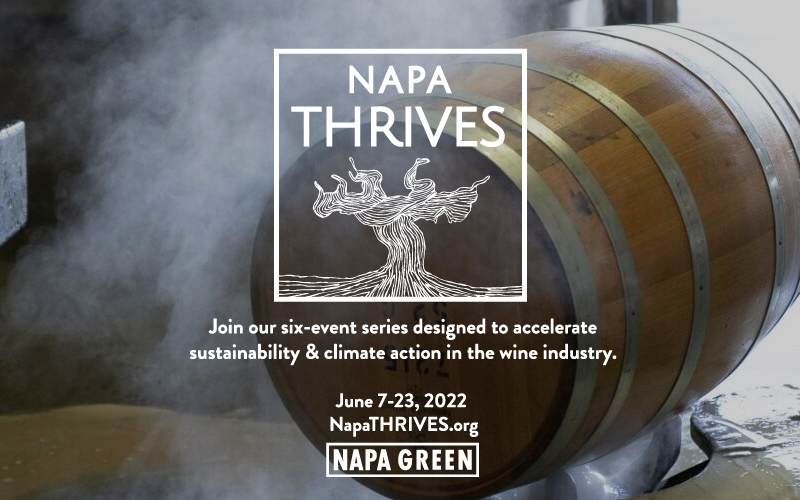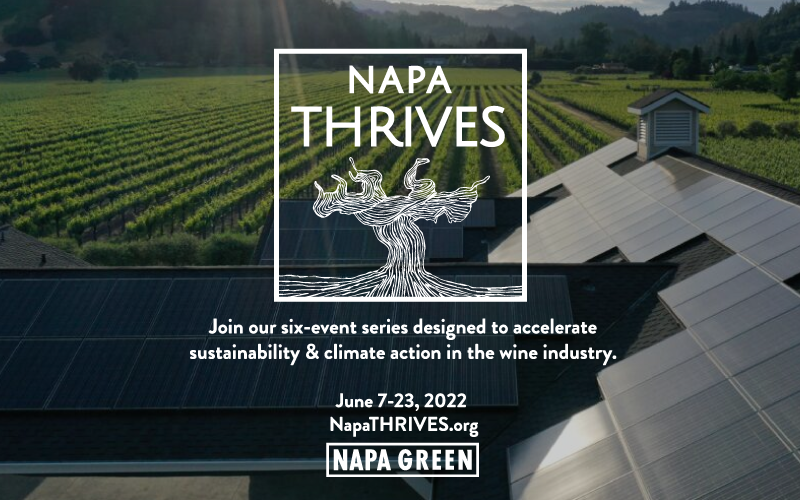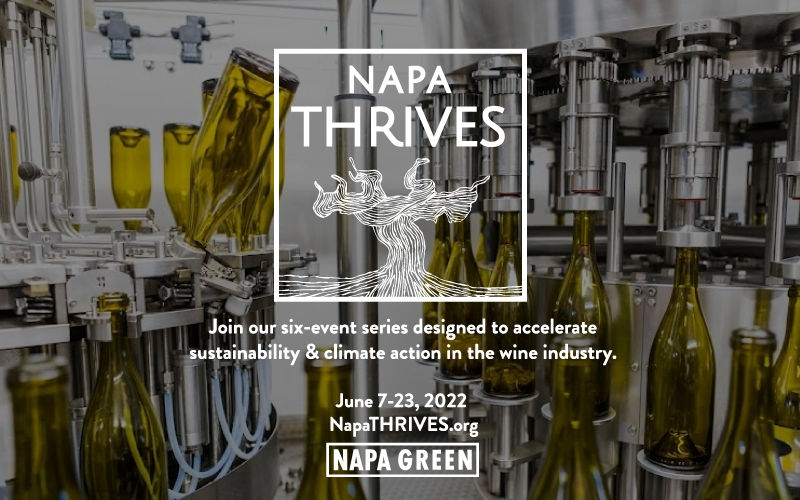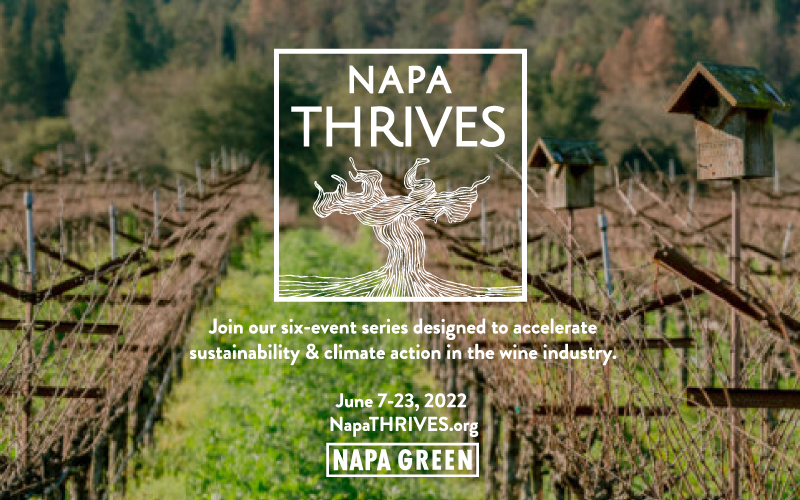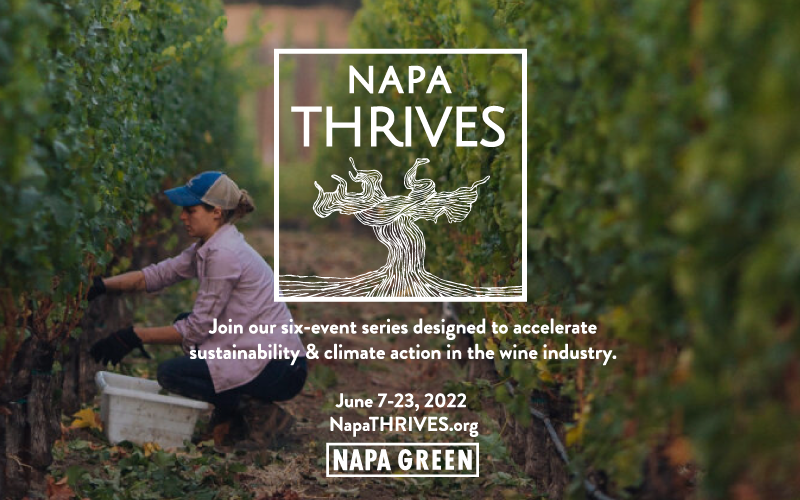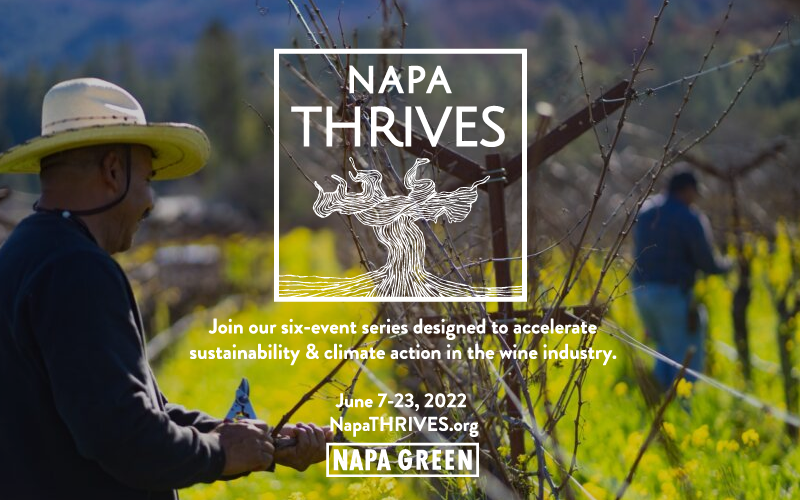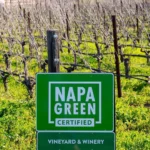THRIVES 2022
CLIMATE ACTION & REGENERATIVE FARMING
EVENT SPONSOR: PORTO PROTOCOL AND IWCA
The Porto Protocol Foundation is an international non-profit institution, founded by Taylor’s Fladgate Port, with hundreds of other members committed to make a greater contribution to mitigate climate change.
Born in the wine industry and spread across the whole value chain, they strive to be a catalyst of climate action. Their belief is that, if we share our successes and experiences, our response to climate change will be more effective.
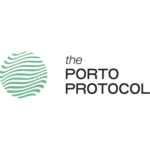
International Wineries for Climate Action (IWCA) is a collaborative working group of environmentally committed wineries taking a science-based approach to reducing carbon emissions across the wine industry.
Our goal is to share best practices that mitigate climate change impacts in vineyard and winery operations so that we can act collectively to decarbonize the global wine industry—applying direct solutions that avoid purchasing carbon offset credits.
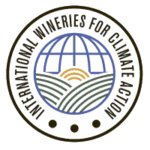
MENTORSHIP IN ACTION:
REGENERATIVE CARBON FARMING & BUILDING SOIL HEALTH
Regeneration is becoming something of a buzzword. Does it really mean anything? In fact, it does – building soil health, water and nutrient retention, biodiversity, and overall vineyard resilience, while also storing, or sequestering, more carbon in the soil. Through regenerative carbon farming growers can play a proactive role in climate change mitigation. Jim Duane and Seavey Vineyard have been implementing a number of carbon farming practices for several years, including application of compost and biochar, and using conservation tillage. During this workshop, join Jim as he begins working with Domaine Chandon to expand their regenerative practices, and shares their lessons learned.
Mentor and Mentees
Jim Duane | Winemaker at Seavey Vineyard
Jim has led Seavey’s winemaking since 2011 after stints at Robert Mondavi Winery and Stag’s Leap Wine Cellars where he became inspired to focus on Bordeaux varietals. Jim combines rich knowledge of winemaking from around the world with deep technical understanding of vineyards and wine, receiving his Master’s Degree in Viticulture and Enology from UC Davis. About Seavey, Jim says: “I delight in the rugged terraces and steep vineyards here, which provide constant opportunities to refine our cultivation methods, And in our small team’s relentless pursuit of crafting unmistakable, world-class wines.” Jim is also passionate about wine education and produces an informative and entertaining Inside Winemaking Podcast.
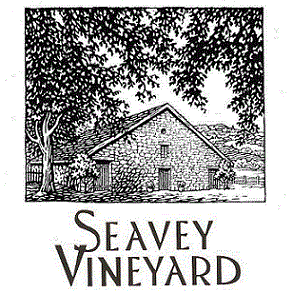
Margarita Postoronca | Viticulturist and Grower Relations at Domaine Chandon
Margarita oversees viticulture for 650 acres of the Domaine Chandon Estate Vineyards. Her responsibilities include, but are not limited to creating fertilization programs, creating and distributing irrigation work orders, creating and overseeing pesticide spray program (both organic and conventional), maintaining and leading sustainability certifications.

Allison Cellini Wilson | Director of Vineyard Operations at Cliff Lede Vineyards
As Director of Vineyard Operations at Napa Valley-based Cliff Lede Vineyards, Allison Wilson is responsible for overseeing all farming and redevelopment of the winery’s three estate vineyards in the Stags Leap District, Carneros, and Calistoga AVAs. She works closely with the internal winemaking team to develop and implement the vineyard department’s farming protocols, while also managing all of Cliff Lede Vineyards’ external grower relations.
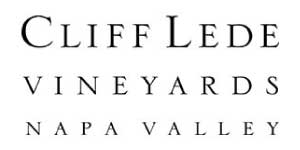
WORKSHOP: GHG INVENTORIES & HOW TO TACKLE SCOPE 3
The most challenging aspect of a greenhouse gas (GHG) emissions inventory is collecting the “Scope 3” data – this includes purchasing, distribution, employee commute, and business travel. This can also be the most impactful part of the inventory because it typically accounts for the majority of vineyard and winery emissions. Martin Reyes MW and Molly Sheppard have led year-over-year inventories at Spottswoode Winery and will share the data collection process, and, perhaps more importantly, how they ultimately put the inventory results in context to help guide change. Kayalin Akens-Irby from Planet FWD will speak about how they assist brands in completing emissions inventories and achieving Carbon Neutral status, and Fintan Du Fresne, General Manager & Winemaker, Chamisal Vineyards, will speak about leading the inventory process for Crimson Wine Group.
Expert PANELISTS
Molly Sheppard | Educational Winemaker at Spottswoode Winery
Molly Sheppard is the Educational Winemaker & Sustainability Manager at Spottswoode Estate Vineyard & Winery located in St Helena, Napa Valley. Growing up in Australia, Molly studied Molecular Genetics at the University of Melbourne before completing her degree in Agribusiness, Viticulture & Enology at Curtin University in Western Australia. After working in wineries in Victoria, Margaret River and the Yara Valley, Molly made her first trip to Napa Valley as an intern for the 2017 vintage and has been in the Napa Valley ever since, joining the Spottswoode team in 2018.

Kayalin Akens-Irby | Chief of Staff at Planet FWD
Kayalin Akens-Irby is an impact-oriented strategist who has spent her career working with investors and companies to improve business operations and capitalize on new opportunities within an evolving market which increasingly values transparency, sustainability, and business ethics. Kayalin is currently Chief of Staff at Planet FWD, the leading carbon management platform for consumer brands to tackle climate change. She also serves as a Board Member for the Upcycled Food Association and a Climate Fellow for Amasia VC.
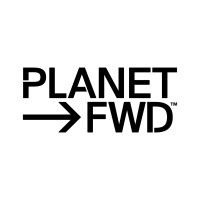
Fintan Du Fresne | General Manager & Winemaker at Chamisal Vineyards
Originally from the southern end of New Zealand’s North Island, Fin graduated from Victoria University of Wellington at the age of twenty with a degree in geology. Most graduates of the program headed straight to work on an oil rig, but Fin was not interested in that life. He was interested in learning more about and exploring the relationship between land and how it affected grape growing, essentially the concept of how geology affected terroir, so he changed tracks and obtained a post-graduate degree in Viticulture and Enology at Lincoln University in Canterbury.

MARQUEE SPEAKER FIREWORKS:
KIMBERLY NICHOLAS, JONATHAN FOLEY & BIRGIT CAMERON
You don’t want to miss this! Three leaders doing the work on climate action speaking together about how we achieve the main goal of Napa THRIVES: Accelerating Sustainability and Climate Action in the wine industry and the world. Moderated by Dr. Drew Isaacs, climate scientist.
From Kimberly Nicholas from Lund University to Jonathan Foley of Project Drawdown to Birgit Cameron at Patagonia Provisions, they will discuss current and future impacts of climate change, how to build the scale and pace of emissions drawdown, and the role of carbon farming and nature-based solutions.
Expert PANELISTS
Dr. Andrew Isaacs, PhD | Director of New Management of Technology Programs at Haas School of Business
Andrew Isaacs joined the UC Berkeley faculty in 1999. In 2000 he was appointed Executive Director of UC Berkeley’s Management of Technology Program, the joint program of the Haas School of Business and College of Engineering. He co-founded UC Berkeley’s Center for Energy and Environmental Innovation in 2005, and since 2006 has served as Faculty Director of UC Berkeley Executive Education.

Prof. Kimberly Nicholas | Sustainability Scientist at Lund University and Author of Under the Sky We Make
Prof. Kimberly Nicholas is a sustainability scientist at Lund University in Sweden. She has published over 55 articles on climate and sustainability in leading peer-reviewed journals; writes for publications such as Elle, The Guardian, Scientific American, and New Scientist; and is the author of UNDER THE SKY WE MAKE: How to be Human in a Warming World, and the monthly climate newsletter We Can Fix It. She gives lectures and moderates at about 75 international meetings and organizations each year across public policy, civil society, arts and culture, the wine industry, foundations, and academia. Her work has been featured by outlets including the BBC, The New York Times, The Washington Post, The Atlantic, National Public Radio, Public Radio International, Vox, and USA Today. Born and raised on her family’s vineyard in Sonoma, California, she studied the effect of climate change on the California wine industry for her PhD in the Interdisciplinary Program in Environment and Resources at Stanford University.
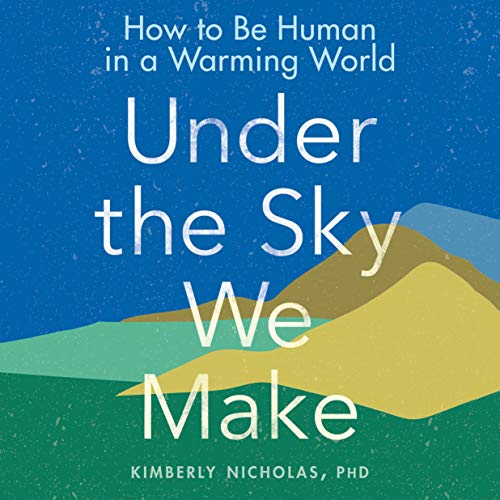
Jonathan Foley | Executive Director at Project Drawdown
Dr. Jonathan Foley is a world-renowned environmental scientist, sustainability expert, author, and public speaker. His work is focused on understanding our changing planet, and finding new solutions to sustain the climate, ecosystems, and natural resources we all depend on. Jon’s groundbreaking research and insights have led him to become a trusted advisor to governments, foundations, non-governmental organizations, and business leaders around the world. He and his colleagues have made major contributions to our understanding of global ecosystems, food security and the environment, climate change, and the sustainability of the world’s resources. He has published over 130 peer-reviewed scientific articles, including many highly cited works in Science, Nature, and the Proceedings of the National Academy of Sciences. In 2014, Thomson Reuters named him a Highly Cited Researcher in ecology and environmental science, placing him among the top 1 percent most cited global scientists.

Birgit Cameron | Co-Founder and Head of Patagonia Provisions
Birgit Cameron is the Head of, CA-based Patagonia Provisions, a division of Patagonia Works, founded in 2012 by Patagonia founder/owner Yvon Chouinard and Patagonia former CEO Rose Marcario. Patagonia Provisions was created as a way to broaden Patagonia’s environmental mission by partnering with forward-thinking farmers, ranchers and fisherman and offers a variety of regeneratively sourced organic food.
Under Birgit’s direction, Patagonia Provisions has introduced a varied line of mission-based food products intended to address critical environmental issues while establishing a model to help restore the food chain. Patagonia Provisions has doubled its sales each year, as Birgit has rapidly expanded distribution into national grocery stores and outdoor lifestyle chains. In addition, she has introduced Patagonia Provisions to international markets in Europe and Asia. Birgit has been a fervent advocate, financial supporter, and partner to a variety of like-minded organizations who follow a similar mission as Patagonia’s: “We’re in business to save our home planet.”
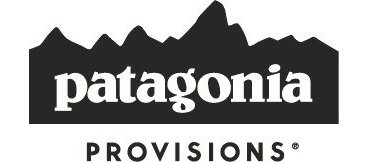
EXPERT PANEL: PROACTIVE CLIMATE ACTION LEADERSHIP
& THE FUTURE OF FINANCE
In 2021, Napa Green became the first sustainable winegrowing certification to redevelop their Vineyard standards to focus on climate action, regenerative agriculture, and social equity, diversity, and inclusion, with the aim to help growers become carbon neutral within six years, and climate positive within nine years. Through the Porto Protocol, members worldwide commit to climate action and share solutions to collaboratively tackle climate change. And members of International Wineries for Climate Action baseline and track their GHG emissions and create roadmaps to achieve Net Zero emissions, including onsite renewable energy. In March 2022, the SEC proposed rules that will in short order require all publicly-trade businesses to disclose annual emissions and climate-related risks to investors, and soon thereafter any business seeking financial investment will need to show sustainability metrics and climate action. This panel will explore how these organizations can individually and collectively accelerate wine industry climate action leadership, and help their members proactively prepare for a new market reality.
Expert PANELISTS
Peter Marks, MW | Wine Industry Consultant and Educator
Peter Marks, Master of Wine, is an internationally respected wine industry consultant and educator based in the Napa Valley. Marks is one of only 52 Masters of Wine residing in the United States and one of 390 in the world. The prestigious Master of Wine (MW) title is bestowed by the Institute of Masters of Wine (IMW) in London. Marks received his MW designation in 1995 when he became the 10th American to pass. That year he also became the first American to receive the Madame Bollinger Foundation Award, which is bestowed annually to the MW candidate with the highest blind tasting score.
Anna Brittain | Executive Director at Napa Green
Anna Brittain is the Executive Director of Napa Green. Anna has worked locally, nationally and internationally on environmental management and policy with organizations ranging from the environmental economics think tank Resources for the Future in Washington, DC to the International Union for Conservation of Nature in Hanoi, Vietnam. She has spent a decade facilitating and growing sustainability in the wine industry, with an expertise in communications and certification standards. Anna has served as a lead sustainability consultant with Ontario Craft Wineries, Sustainable Winegrowing British Columbia, Crimson Wine Group, the California Sustainable Winegrowing Alliance, and individual wineries including Benziger Family Winery and Seghesio Family Vineyards. She has helped lead the growth of the Napa Green program for over six years, and stepped into the position of Executive Director of the now independent non-profit in fall 2019. Anna has a Master’s of Environmental Science & Management from the Bren School at UC Santa Barbara and a BA in Political Science and Environmental Studies from Williams College.
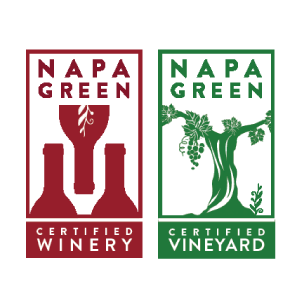
Alexandra Everson | International Wineries for Climate Action (IWCA)
Alexandra Everson is a Sustainability Analyst at Jackson Family Wines and representative for International Wineries for Climate Action.
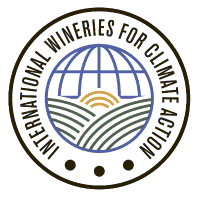
Marta Mendonca | Manager at Porto Protocol
Marta Mendonca is the Manager at Porto Protocol. Marta has built most of her career in Marketing & Sales, having worked with various brands, countries, industries and companies. In the past few years, before joining Porto Protocol, Marta was working with her own brand and consultancy project, through which she took sustainability and climate advocacy to schools, events and companies, promoting awareness and encouraging change. Marta holds a degree in International Relations, a Post-Graduation in Marketing and a Master in Corporate Social Responsibility.
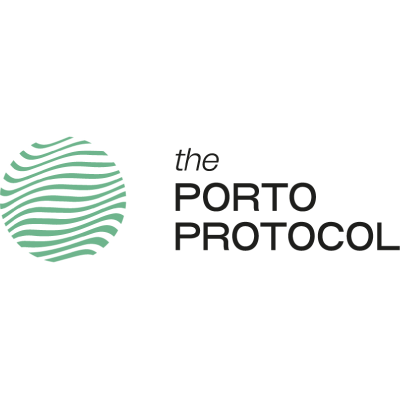
Elisa Turner | Managing Partner at Impakt IQ
Elisa Turner is the Managing Partner at Impakt IQ. Elisa is a recognized thought leader on ESG and sustainable business models. She advises business leaders on evolving their businesses to become profitable impact organizations – helping them understand and harness the holistic interconnections between risk, reward and impact.
She has been recognized “As A TOP 50 Leader” by the World Summit on Innovation and Entrepreneurship, listed by Gartner as a top 5 “Cool Vendors” in Sustainable Business Solutions and was a member of the United Nations Global Compact Business Leader’s Summit on Sustainable Business Solutions. She has collaborated with the Sustainability Accounting Standards Board, Global Reporting Initiative, CDP and served as a speaker on sustainable business models for industry conferences.
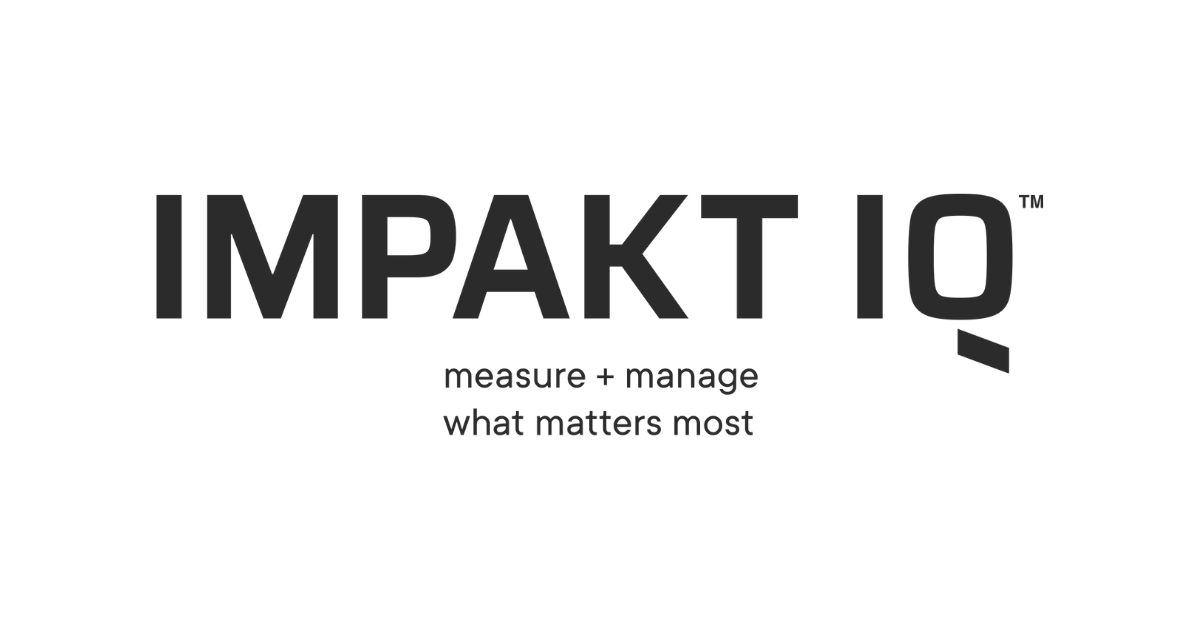
EXPERT PANEL: PORTO PROTOCOL: BUILDING A KNOWLEDGE SHARING COMMUNITY FOR CLIMATE ACTION
Porto Protocol is a key outcome of the Climate Change Leadership conferences. Through collaborative sharing and action, it grew into an international movement catalyzing climate action in the wine world. Learn more about why this is imperative from expert panelists, Robin Lail, Founder and Owner of Lail Vineyards, Porto Protocol’s Manager, Marta Mendonça, and Project Manager, Cristina Crava.
Expert PANELISTS
Robin Lail | Founder & Owner Lail Vineyards
Robin Lail grew up among the vineyards of Inglenook, founded in 1879 by her great-granduncle, Gustave Niebaum, who pioneered fine winemaking in the Napa Valley. Inglenook was passed down to Robin’s grandfather and then to her father, John Daniel Jr., a true innovator (he was the first to put ‘Napa Valley’ on his labels, and pioneered varietal labeling) and wine industry leader who produced legendary wines. While Robin was not curried to work in the wine business in her youth, she was surrounded by it, and touched by her dad’s passion and focus on tradition and excellence.
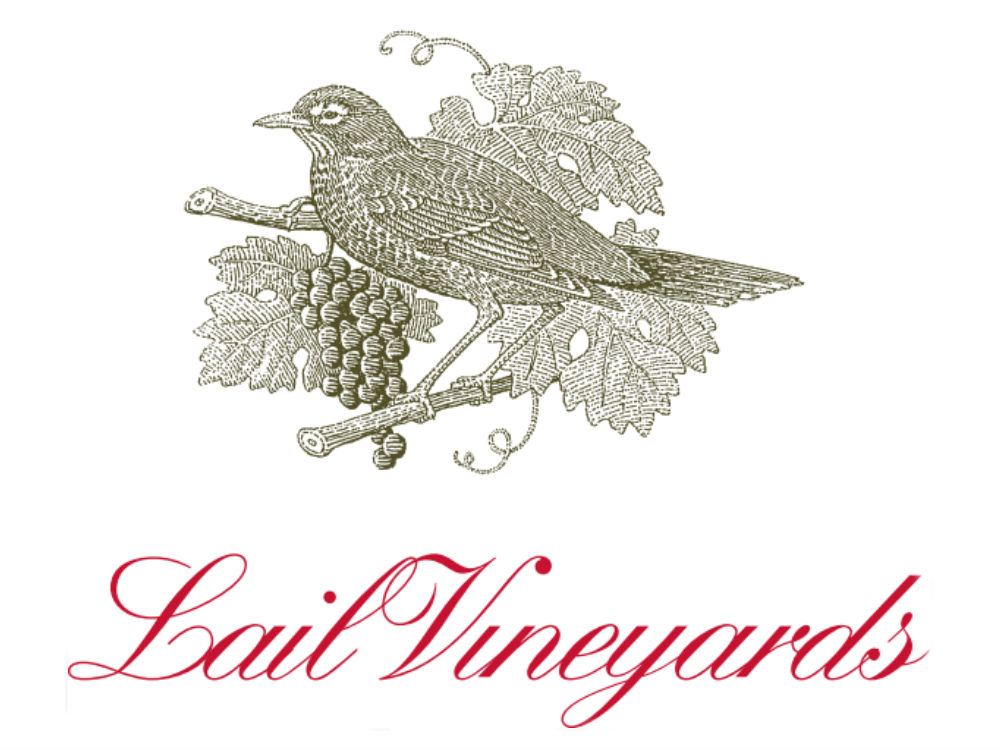
Anna Brittain | Executive Director at Napa Green
Anna Brittain is the Executive Director of Napa Green. Anna has worked locally, nationally and internationally on environmental management and policy with organizations ranging from the environmental economics think tank Resources for the Future in Washington, DC to the International Union for Conservation of Nature in Hanoi, Vietnam. She has spent a decade facilitating and growing sustainability in the wine industry, with an expertise in communications and certification standards. Anna has served as a lead sustainability consultant with Ontario Craft Wineries, Sustainable Winegrowing British Columbia, Crimson Wine Group, the California Sustainable Winegrowing Alliance, and individual wineries including Benziger Family Winery and Seghesio Family Vineyards. She has helped lead the growth of the Napa Green program for over six years, and stepped into the position of Executive Director of the now independent non-profit in fall 2019. Anna has a Master’s of Environmental Science & Management from the Bren School at UC Santa Barbara and a BA in Political Science and Environmental Studies from Williams College.

Marta Mendonca | Manager at Porto Protocol
Marta Mendonca is the Manager at Porto Protocol. Marta has built most of her career in Marketing & Sales, having worked with various brands, countries, industries and companies. In the past few years, before joining Porto Protocol, Marta was working with her own brand and consultancy project, through which she took sustainability and climate advocacy to schools, events and companies, promoting awareness and encouraging change. Marta holds a degree in International Relations, a Post-Graduation in Marketing and a Master in Corporate Social Responsibility.

Cristina Crava | Project Manager at Porto Protocol
Cristina is the Project Manager at Porto Protocol. She is an Environmental Engineer, a Safety and Health at Work Advanced Technician and holds a Post-Graduation in Management. She has built most of her career in an academic setting, at Católica University, in Porto, first as a teacher and as the scientific coordinator for the Environmental Quality Specialized Course and later on, as Advanced Training Manager. Cristina always worked in environmental consultancy across various industries, alongside her educational path, and still finds the time to manage, along with her family, their Vinho Verde project.

EXPERT PANEL:
NAVIGATING THE EVOLVING FINANCE LANDSCAPE
Dive deeper into the implications of the changing financial landscape and evolving requirements for Environmental Social Governance metrics and reporting. Join Jeff Kuhlman with First Republic, Elisa Turner with Impakt IQ and Julien Gervreau with Sensiba San Filippo as they share how the new finance and investor requirements that are on the horizon may drive change in the wine industry, and how to get ahead of the curve, including the benefit of certifications like Napa Green.
Expert PANELISTS
Kelli Audrey White | Sommelier, Author of Napa Valley, Then & Now and Director of Education at Meadowood
Kelli A. White is the Director of Education for the Pacific Union Company in Napa Valley. Prior to that, her work as a sommelier, first at New York City’s Veritas and then at PRESS in St. Helena, has been covered by many of the wine industry’s top publications, including Food & Wine, Vinous, The Wine Advocate, The Wine Spectator, the San Francisco Chronicle, World of Fine Wine, and Forbes; in 2013 she was named one of Food & Wine’s top ten sommeliers in the country. Her writing has appeared in World of Fine Wine, GuildSomm, Robb Report, Sommelier Journal, Le Pan, and Vinous. At Vinous, Kelli was a key member of the maps team, and worked with famed Italian cartographer Alessandro Masnaghetti to map many of the appellations of Napa Valley. In 2011, she co-founded a small wine brand called Houndstooth and she also made a brief appearance in 2015’s documentary Somm II: Into the Bottle. Her book, Napa Valley, Then & Now, was released in November of 2015 and has received enormous critical acclaim, winning both the IACP award for Best New Wine, Beer, or Spirits Book and a Graphis design award.

Elisa Turner | Managing Partner at Impakt IQ
Elisa Turner is the Managing Partner at Impakt IQ. Elisa is a recognized thought leader on ESG and sustainable business models. She advises business leaders on evolving their businesses to become profitable impact organizations – helping them understand and harness the holistic interconnections between risk, reward and impact.
She has been recognized “As A TOP 50 Leader” by the World Summit on Innovation and Entrepreneurship, listed by Gartner as a top 5 “Cool Vendors” in Sustainable Business Solutions and was a member of the United Nations Global Compact Business Leader’s Summit on Sustainable Business Solutions. She has collaborated with the Sustainability Accounting Standards Board, Global Reporting Initiative, CDP and served as a speaker on sustainable business models for industry conferences.

Julien Gervreau | Director of Sustainability Implementation & Climate Action Planning at Sensiba San Filippo and Founding Board Member of International Wineries for Climate Action (IWCA)
Julien Gervreau is the Director of Sustainability Implementation & Climate Action Planning at Sensiba San Filippo and Founding Board Member of International Wineries for Climate Action (IWCA). He is a sustainable strategy, innovation, and operations professional with 15+ years of experience working with executive leadership to develop and implement successful environmental stewardship and social impact strategies. Values and data-driven professional adept at integrating systems thinking, financial analysis and related frameworks that make the business case for long-term investment in climate mitigation and resilience.

Jeff Kuhlman | Senior Vice President at First Republic Investment Management
Jeff Kuhlman leads the investment portfolio consulting group at First Republic Investment Management. He is a Senior Vice President focused on driving accessibility of goals-based and values-aligned investment solutions. In this role, he provides research, oversight, and strategic guidance for the firm’s sustainable and responsible investing platform and digital advisory solution. He works with nonprofit foundations and endowments, helping them integrate environmental, social, and governance goals into their investment policy statement and portfolio.
Active in his local community, Jeff serves on the Board of Governors for the CFA Society of Los Angeles and chairs the society’s Environmental, Social, and Governance (ESG) Advisory Council. He is an advocate for financial literacy and regularly volunteers as an instructor for Operation Hope and Americorps.

Sustainable Services & Tools sponsors
Porto Protocol Foundation | Marta Mendonca
The Porto Protocol Foundation is an international non-profit institution, founded by Taylor’s Fladgate Port, with hundreds of other members committed to make a greater contribution to mitigate climate change.
Born in the wine industry and spread across the whole value chain, they strive to be a catalyst of climate action. Their belief is that, if we share our successes and experiences, our response to climate change will be more effective.

International Wineries for Climate Action (IWCA) | Julien Gervreau
International Wineries for Climate Action (IWCA) is a collaborative working group of environmentally committed wineries taking a science-based approach to reducing carbon emissions across the wine industry.
Our goal is to share best practices that mitigate climate change impacts in vineyard and winery operations so that we can act collectively to decarbonize the global wine industry—applying direct solutions that avoid purchasing carbon offset credits.

APCOR 100% Natural Cork | Greg Whisenant
APCOR is the employers’ association of the cork sector that represents, promotes, divulges and carries out research in the Portuguese cork industry. Cork stoppers are a natural, recyclable and reusable product. Cork is an indelible factor of social and economic development for the countries of the Western Mediterranean. It combines a centuries-old tradition with the most modern practices of an industry of the future, and one that leads the way in sustainability. The extraction of cork is the most well-paid agricultural work in the world, due to the expertise and care that it requires. Cork helps to ensure the sustainability of the montados, contributing to a balanced relationship with nature and the maintenance of the ecosystems that are linked to it. The montados play an essential role in water regulation, and in protecting the soil and carbon sequestration. The cork industry therefore provides a guarantee of a more promising future due to the environmental, economic and social sustainability that it advocates.
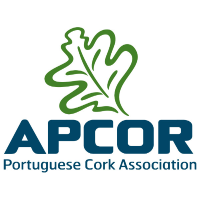
Nori Carbon Removal Marketplace | Rebekah Carlson
Nori believes to avoid climate catastrophe, we need to radically reduce our carbon emissions and remove the excess from our atmosphere. The problem is, our current economic system makes it easier and more profitable to emit carbon than to avoid doing so. Maintaining this status quo doesn’t just guarantee climate change, it also prevents businesses doing what they’re best at to be part of the solution. It shouldn’t be this way.
Instead, we need a platform that makes it easy to fund carbon removal. A platform that allows businesses to help repair our planet by removing any carbon emissions they can’t yet avoid creating. An open platform that everyone can invest in with confidence, no matter how big or small their contribution. A platform that allows individuals, businesses, and nature to thrive, while creating a legacy we can be proud of.
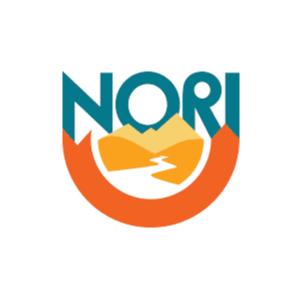
2B Ferm Control | Bayard Fox
2B is completely independent from other manufacturers or corporate groups and exclusively offers products from their own research and development. For their products they use EC organic-certified raw materials without any compromises in functionality or safety in the application. These features make 2B products completely different from conventional products for wine making.

Govino | Joseph Perrulli
Often Imitated.
NEVER duplicated.ut!
From day one, govino has been committed to reducing the waste caused by single-use plastics through reuse.
Everytime you reuse your govino glass, you are helping to eliminate one more plastic cup from entering our precious oceans and ecosystems. We think that’s something to feel good about!
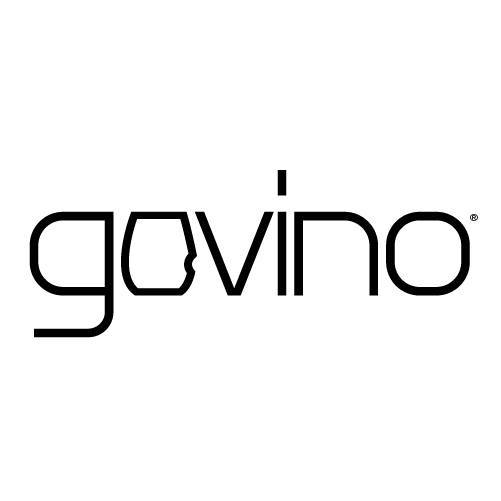
Pacific Biochar | Josiah Hunt
Pacific Biochar is on a Mission to Put Carbon Safely Back in the Ground and Leave a Legacy of Fertile Soil.
They modify biomass power plants for biochar production, thus leveraging existing infrastructure, trained staff, and hard earned utility and procurement contracts. This lets them get to significant production volume fast and with low cap ex. They’re initially focused on utilization of forest biomass from high fire hazard areas in California, thus helping mitigate catastrophic wildfire in our feedstock sourcing. The high quality biochar they make is then distributed primarily in ag, and commonly in collaboration with compost yards. This gets them efficiency in shared equipment, trucking, and additional co-benefits; when biochar is used in composting it not only makes a great combined product but ends up dropping GHG emissions from compost significantly. After years in the field, they’ve gained fruitful relations with some of California’s largest ag companies.
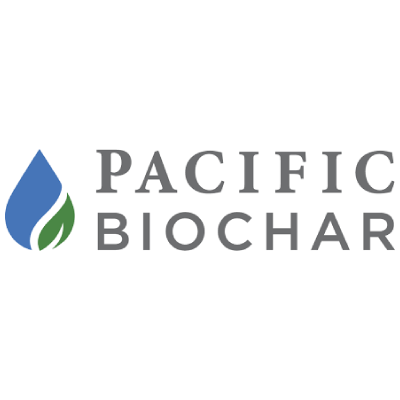
Solectrac Electric Tractors | Joe Nowicki
Why Electric Tractors?
Solectrac Electric Tractors offer many advantages compared to traditional diesel tractors.
- Fuel Cost Savings: Electricity is a fraction of the cost of diesel fuel.
- No Emissions: Our electric tractors do not produce exhaust; this is a great health benefit for farmworkers, livestock, and the environment and makes working in enclosed spaces possible.
- Noise Reduction: Electric tractors are significantly quieter than diesel tractors of similar size and power, reducing hearing damage, as well as increasing the ability to communicate.
- Less Maintenance: Electric motors only have one moving part, compared to a diesel engine that has hundreds. There is no engine oil to replace, oil filters to change, or engine tune-ups to schedule.
- Renewably Charged: With a solar array, our tractors can be recharged from the sun, or from another renewable energy source, offering owners energy independence from the price volatility of fossil fuels.

Clean Burn Company | Eric Carlson
Full service Wildfire Fuel Reduction and Forest Debris Management.
With their mobile burn process, The Clean Burn Company is able to perform most burning services where the piles are; eliminating the need to dismantle and manage each part of the tree separately. They manage all parts of a tree in one process.
No hauling, no chippers, no piles of flammable material left behind.

Napa Green | Megan Scott
Napa Green serves as a catalyst and facilitator to grow certified sustainable, responsible businesses committed to the environmental stewardship and climate action in Napa County. Our members stand as leaders exemplifying that sustainability and caring for nature and community elevates quality and experience for employees, customers and community, now and in the future.


